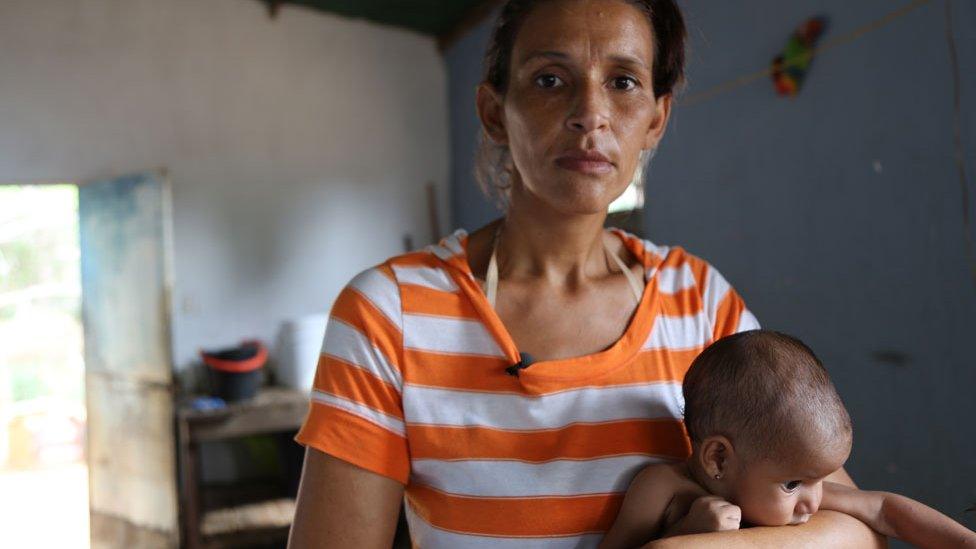Venezuela's star conductor Dudamel says 'enough' of violence
- Published
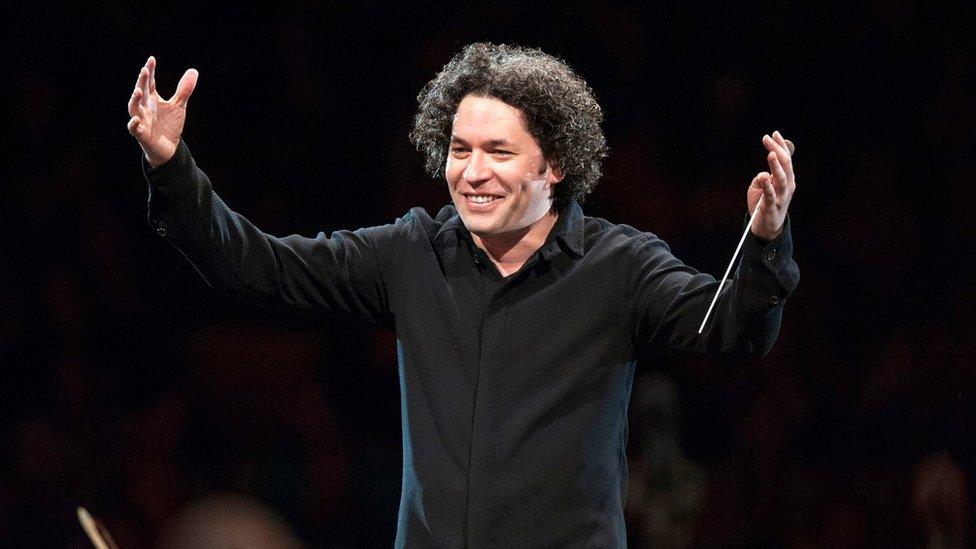
Gustavo Dudamel is currently music director of the Los Angeles Philharmonic Orchestra
Renowned conductor Gustavo Dudamel has urged the government in his native Venezuela to "listen to the people" after weeks of violent protests.
He posted his strongly-worded message after an 18-year-old musician was killed at a rally in Caracas.
"Nothing can justify the bloodshed," he wrote on his Facebook page, external.
More than 30 people have been killed and hundreds either injured or arrested since protesters took to the streets in early April.
The demonstrations were sparked by an attempt by the Supreme Court to take over the powers of the opposition-controlled National Assembly.
The country is suffering from severe shortages of basic foods and other necessities after falling prices for oil exports cut government revenue. Inflation is expected to hit 700% this year.
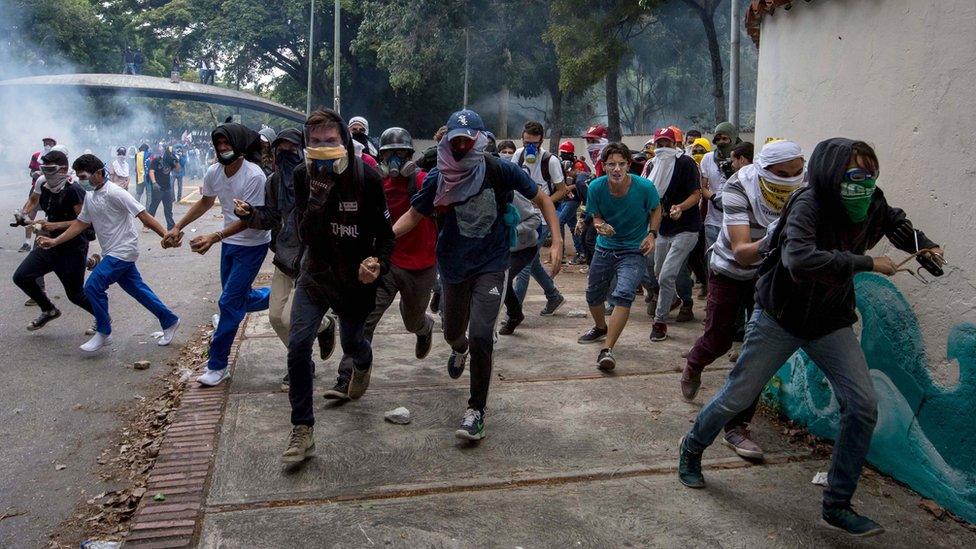
Protesters run from tear gas as a rally turns violent in Caracas on Thursday....
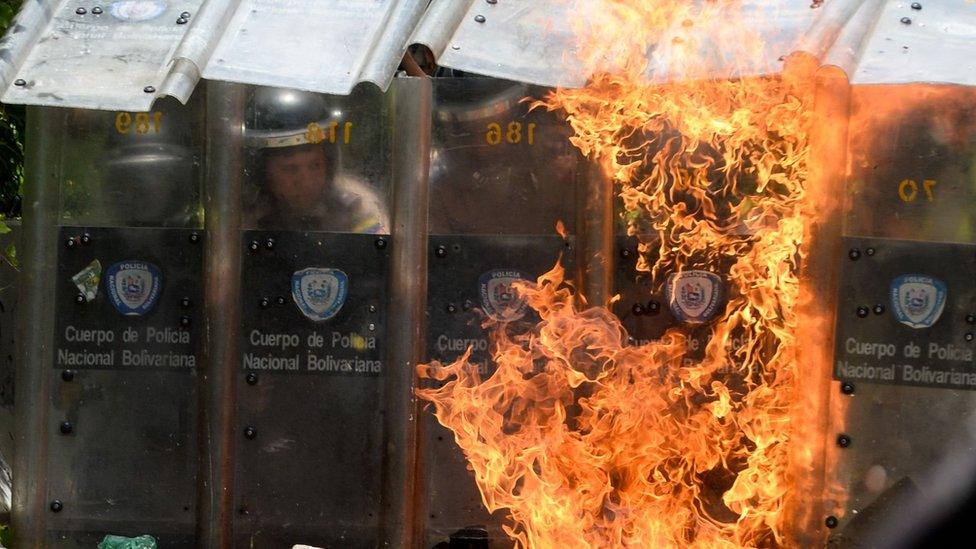
Police shield themselves from firebombs thrown by protesters
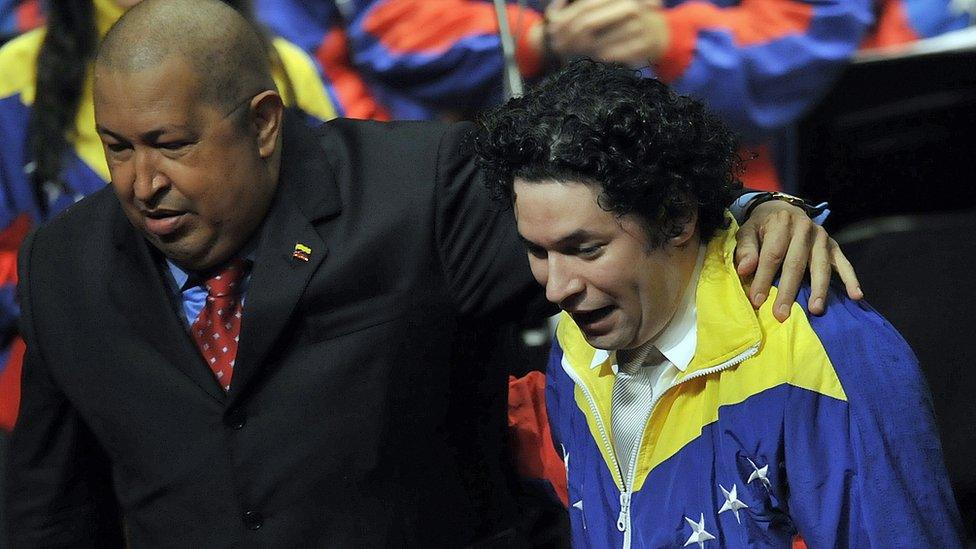
Dudamel, seen here with Venezuela's late leader Hugo Chavez, is seen as being on good terms with the government
Gustavo Dudamel, 36, is the music director of the Los Angeles Philharmonic Orchestra and one of the stars of Venezuela's famous musical education programme El Sistema.
Still music director of the Simon Bolivar Symphony Orchestra of Venezuela, he has sometimes been accused of not being critical enough of the Caracas government.
But he was moved to speak out after the death on Wednesday of the 18-year-old musician, who was a member of El Sistema.
Under the headline "I raise my voice", he wrote: "We must stop ignoring the just cry of the people suffocated by an intolerable crisis".
He said "no ideology can go beyond the common good" and "politics must be exercised from conscience and in the utmost respect of the Constitution".
He urged President Nicolas Maduro to "listen to the voice of the Venezuelan people", and create a system "where we can walk freely in dissent, in respect, in tolerance, in dialogue".
Youths hurled rocks and fire bombs and police responded with rubber bullets and water cannon on Thursday.
A student leader was also shot dead while at a meeting in the northern state of Anzoategui, the AFP quoted the prosecutor's office as saying. It was not clear whether the killing was linked to the protests.
The government has warned demonstrators that their right to cause street disruption is not absolute.
Justice and Interior Minister Nestor Reverol warned that blocking highways carried an eight-year sentence.
President Maduro succeeded Hugo Chavez, a popular but polarising leader who had introduced wide-ranging social welfare programmes and died in 2013.
However, Mr Maduro has been unable to inspire the same popularity and loyalty as his predecessor.
Presidential elections are due at the end of next year.
- Published2 May 2017
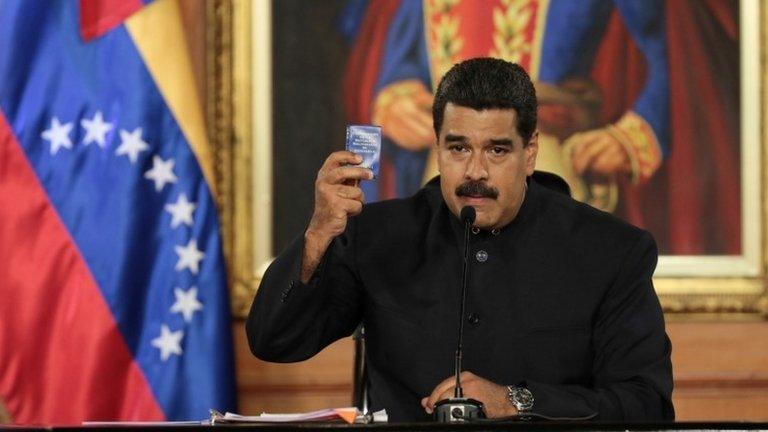
- Published1 May 2017

- Published28 April 2017

- Published12 August 2021
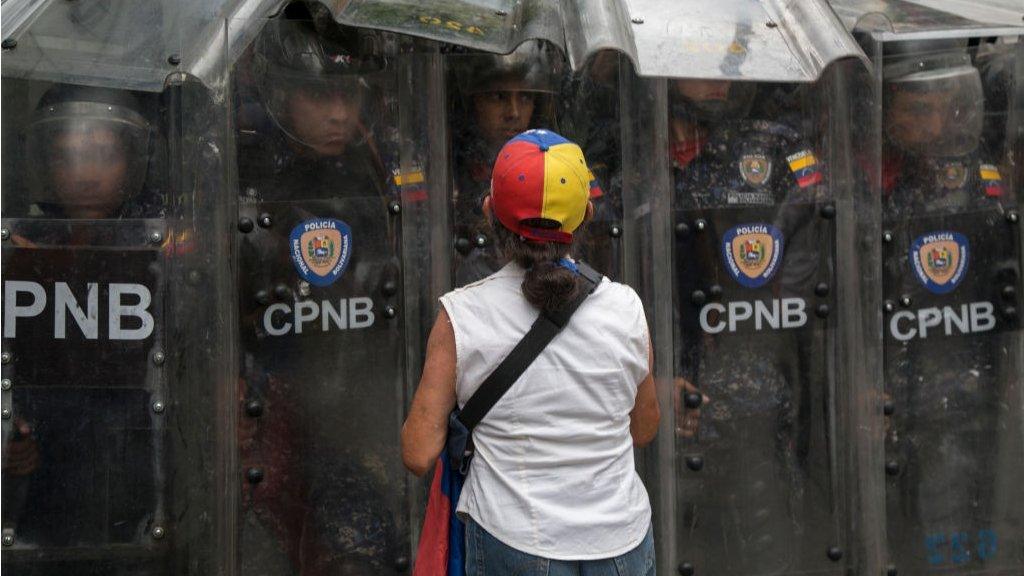
- Published29 July 2016
